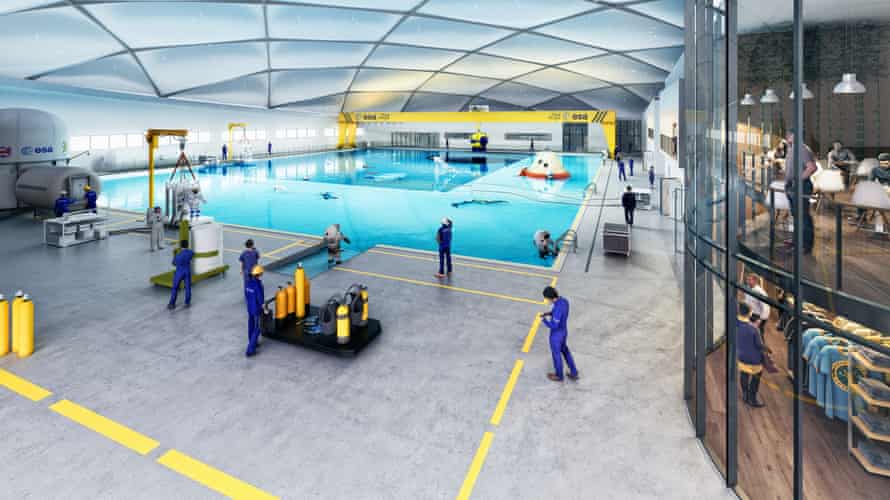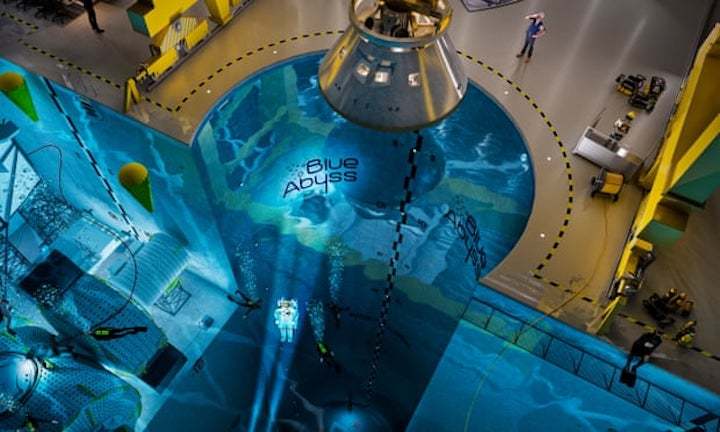Plans have been submitted to build the world’s deepest artificial pool in Cornwall to train astronauts and help advance undersea robotics.
The project would be 40 metres by 50 metres at the surface, with a 16-metre wide shaft plunging to 50 metres at its lowest point – nearly as deep as Nelson’s Column is high – and would also be the world’s largest pool by volume.
The aquatic centre housing it is proposed for a 10-acre site at the Aerohub Enterprise Zone at Cornwall airport in Newquay. The privately funded company Blue Abyss is in the process of applying for planning permission for the £150m project.
The pool, which would have the capacity to fill 17 Olympic-size swimming pools, would be covered by a sliding roof and 30-tonne crane, allowing large objects to be lowered into the pool.
Blue Abyss estimates that the underwater technology test centre will create 160 jobs and generate £8m annually for the local economy.
The company said the project would enable them to simulate sections of the International Space Station, stage underwater film sets, test remote operated vehicles and train deep sea divers.
The British astronaut Major Tim Peake, who is backing the plans, said the site was the “perfect home” for it.
He said: “This project will join Goonhilly Earth Station and Spaceport Cornwall as significant national assets … helping to widen our knowledge of how humans and technology can function in extreme environments, for the benefit of people and the planet.”

John Vickers, chief executive of Blue Abyss and a former forces diving instructor, said: “Blue Abyss will be a huge research asset for aerospace, offshore energy, underwater robotics, human physiology, defence, leisure and marine industries, and a fantastic education centre for children and university students.”
Vickers added that £5m for pre-construction costs had been secured and a range of infrastructure funds had been engaged for the 18-month build.
Steve Double, Conservative MP for St Austell and Newquay, tweeted: “This is another exciting opportunity to attract investment and jobs to Cornwall. Pleased to have been working with and supporting @BlueAbyssDiving and great to see this project making progress.”
Dr Sanjay Sharma, head of the Autonomous Marine Systems Research Group at the University of Plymouth, said it was exciting that Blue Abyss would accommodate extensive testing and training platforms to support high-quality research and development in the marine and space sectors.
“We are looking forward to engaging with Blue Abyss to expand and contribute to the opportunities in marine autonomy, marine renewable energy, and digital twins for marine applications, robotics and autonomous systems,” he said.

